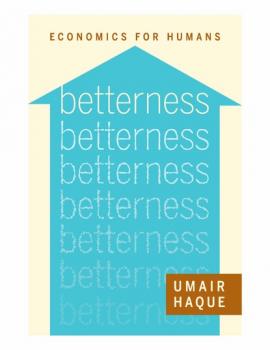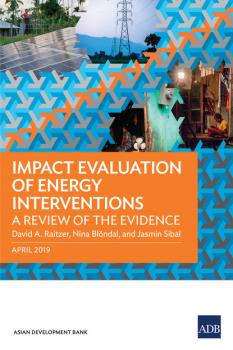ТОП просматриваемых книг сайта:
Зарубежная деловая литература
Различные книги в жанре Зарубежная деловая литература, доступные для чтения и скачиванияАннотация
Stop blaming yourself to not understanding or feeling overwhelmed by the information in your life.
Аннотация
Hundreds of millions of people in China, India, Indonesia, and Brazil are eager to enter the marketplace. Yet multinational companies typically pitch their products to emerging markets' tiny segment of affluent buyers, and thus miss out on much larger markets further down the socioeconomic pyramid—which local rivals snap up. By applying the authors' recommendations, you can position yourself to compete innovatively in developing countries—and to unlock major new sources of revenue for your business. Since 1922, Harvard Business Review has been a leading source of breakthrough ideas in management practice. The Harvard Business Review Classics series now offers you the opportunity to make these seminal pieces a part of your permanent management library. Each highly readable volume contains a groundbreaking idea that continues to shape best practices and inspire countless managers around the world.
Аннотация
In a world where the only certainty is uncertainty, the one sure source of lasting competitive advantage is knowledge. The best companies survive by consistently creating new knowledge, disseminating it widely throughout the organization, and quickly leveraging it in their business processes and their products. In <i>The Knowledge-Creating Company</i>, Ikujiro Nonaka shows how your company can exploit its knowledge to continually innovate and reinvent itself in the face of relentless change. Since 1922, <i>Harvard Business Review</i> has been a leading source of breakthrough ideas in management practice. The Harvard Business Review Classics series now offers you the opportunity to make these seminal pieces a part of your permanent management library. Each highly readable volume contains a groundbreaking idea that continues to shape best practices and inspire countless managers around the world.
How Management Teams Can Have a Good Fight - Kathleen M. Eisenhardt
Harvard Business Review ClassicsАннотация
Conflict in the workplace is natural—and even necessary. Colleagues who challenge one another's thinking tend to consider a richer range of options, which ultimately leads to better business decisions. <i>How Management Teams Can Have a Good Fight</i> reveals the tactics managers can use to ensure that these healthy back-and-forth moments remain constructive and focused on the issues. Managers who embrace this kind of positive conflict will find increasingly engaged, productive teams—and discover that they themselves are better positioned to lead these teams to success. Since 1922, <i>Harvard Business Review</i> has been a leading source of breakthrough ideas in management practice. The Harvard Business Review Classics series now offers you the opportunity to make these seminal pieces a part of your permanent management library. Each highly readable volume contains a groundbreaking idea that continues to shape best practices and inspire countless managers around the world.
Аннотация
Nobel-Prize-winning economist Paul Krugman argues that business leaders need to understand the differences between economic policy on the national and international scale and business strategy on the organizational scale. Economists deal with the closed system of a national economy, whereas executives live in the open-system world of business. Moreover, economists know that an economy must be run on the basis of general principles, but businesspeople are forever in search of the particular brilliant strategy. Krugman's article serves to elucidate the world of economics for businesspeople who are so close to it and yet are continually frustrated by what they see. Since 1922, <i>Harvard Business Review</i> has been a leading source of breakthrough management ideas-many of which still speak to and influence us today. The Harvard Business Review Classics series now offers readers the opportunity to make these seminal pieces a part of your permanent management library. Each highly readable volume contains a groundbreaking idea that continues to shape best practices and inspire countless managers around the world-and will have a direct impact on you today and for years to come.
Аннотация
Meet your new global consumerYou’ve heard of the burgeoning consumer markets in China and India that are driving the world economy. But do you know enough about these new consumers to convert them into customers?Do you know that:• There will be nearly one billion middle-class consumers in China and India within the next ten years?• More than 135 million Chinese and Indians will graduate from college in this timeframe, compared to just 30 million in the United States?• By 2020, 68 percent of Chinese households and 57 percent of Indian households will be in the middle and upper classes?• The number of billionaires in China has grown from 1 to 115 in the past decade alone?In The $10 Trillion Prize, bestselling author Michael J. Silverstein and his The Boston Consulting Group colleagues in China and India provide the first comprehensive profile of the emerging middle class, primed to transform the global marketplace. Already the world’s biggest buyers of cars, mobile phones, appliances, and more, these consumers are eager for more products and services. In fact, it’s estimated that by 2020, consumers in China and India will generate about $10 trillion of total annual revenue for companies selling to them.This book explains who these consumers are—what they buy and why, how they think and shop, and how their needs and tastes are changing. It takes you into their lives so you can better understand what they want and what they’re looking for.Only by fully comprehending the forces driving this new generation of consumers will your company be able to capitalize on the opportunities their buying power represents. Insightful and backed by rigorous research, this book takes you inside the hearts and minds of today’s emerging Chinese and Indian consumers—both urban and rural, and across all income levels—positioning your company to win as the next wave of global affluence reaches the marketplace.
Аннотация
Betterness: Economics for Humans is a powerful call to arms for a post-capitalist economy. Umair Haque argues that just as positive psychology revolutionized our understanding of mental health by recasting the field as more than just treating mental illness, we need to rethink our economic paradigm. Why? Because business as we know it has reached a state of diminishing returns—though we work harder and harder, we never seem to get anywhere. This has led to a diminishing of the common wealth: wage stagnation, widening economic inequality, the depletion of the natural world, and more. To get out of this trap, we need to rethink the future of human exchange. In short, we need to get out of business and into betterness.HBR Singles provide brief yet potent business ideas, in digital form, for today's thinking professional.
Intellectual Journeys of Recent, Mostly "Defunct" Economists - Lall Ramrattan
Touro University PressАннотация
Информация о книге
Автор произведения Lall Ramrattan
Жанр Зарубежная деловая литература
Серия Touro University Press
Аннотация
This publication aims to support impact evaluation in the transport sector by assessing what has been produced against what might be possible. It reviews 91 impact evaluations of transport interventions in developing countries, summarizes findings on outcomes, identifies evidence gaps, and proposes ways forward. Most of the studies reviewed find significant effects on at least one of the outcomes investigated. However, impact evaluation has given relatively little coverage to major areas of investment, such as urban and sustainable transportation, transport corridors, and efficiency enhancing measures. New methods and increasing openness of geospatial data provide scope to generate more innovative impact studies.
Аннотация
This report aims to support impact evaluation in the energy sector by assessing what has been produced against what might be possible. It reviews 85 impact evaluations of energy interventions in developing countries, summarizes findings on outcomes, identifies evidence gaps, and proposes ways forward. A majority of studies has so far focused on rural electrification and improved cookstoves, while most investments are in power generation and transmission. After considering the body of evidence available, directions and approaches are proposed for future impact evaluations to best contribute new evidence regarding the sector.










